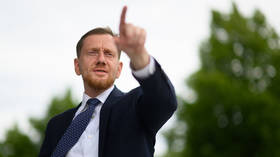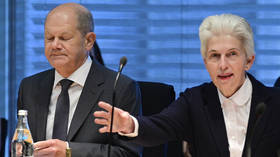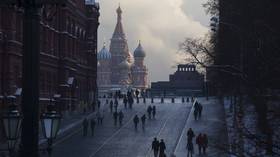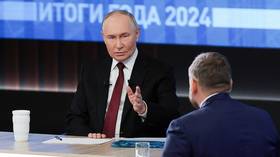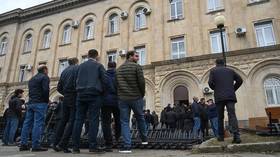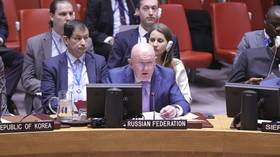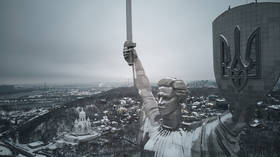West should avoid ‘one-sided’ view on Ukraine crisis – German official
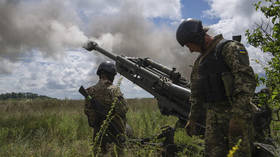
A German state minister has warned against taking a “one-sided” view of the conflict with Russia and Ukraine, saying the West missed opportunities to create lasting peace with Moscow.
Transport Minister of Baden-Württemberg Winfried Hermann joins a growing list of German politicians critical of Berlin’s “one-sided” approach with Moscow and has been accused of espousing a biased view of Russia.
“The military conflicts and participation in wars of the past 30 years do not justify the image that only "belligerent" and "evil" Russia repeatedly enforced its interests with military force,” Hermann wrote in a so-called thesis paper on the war that was made available on the German Press Agency (DPA).
On the other hand, Hermann noted that US interventions around the world had “brought a lot of destruction instead of peace and democracy."
The Green politician believes that Russia has also waged a series of “brutal, illegal wars with proven war crimes” since the fall of the Soviet Union – but that the US with backing from NATO members has launched its own aggressive military campaigns.
Hermann described the fall of the Soviet Union and the Warsaw Pact as missed "opportunities for peace.” That moment in history was a chance for a new "security architecture with arms control and disarmament” which he said would also have taken into account “the interests of the former Soviet states and Russia." The opportunity was wasted in favor of the further eastward expansion of NATO.
The German politician said that a solution to the ongoing conflict in Ukraine must include Russia, regardless of any war crimes committed. “That is the bitter, inescapable truth,” he said.
Local Free Democratic Party parliamentary leader Hans-Ulrich Rülke responded to these statements by calling Hermann a “Putin sympathizer.” He also demanded Baden-Württemberg Prime Minister Winfried Kretschmann (also of the Greens) step in and correct these statements, which he says damages the state’s reputation.
Despite the controversy, Hermann joins a growing list of German politicians who are calling for a more even approach to relations with Moscow.
Hermann is not the only German politician calling for a more even approach to relations with Moscow. Last week, Prime Minister of Saxony Michael Kretschmer told Die Zeit newspaper that the ongoing conflict needs a diplomatic solution and that isolating Russia was bad for Germany.
“I think the idea of isolating Russia permanently or never again cooperating economically is absurd and dangerous… A Russia that is oriented towards China and has no ties to Europe is much more dangerous for us,” Kretschmer told the news outlet.
Germany is feeling the crunch brought by disruptions in Russian natural gas flows to the country, as about half of German households rely on the energy supply for electricity and heating. Meanwhile, a third of the energy for German industry comes from gas. Supplies from Russia have been slashed to a fraction of their normal total in recent weeks due to technical issues – though European officials have accused Russia of weaponizing their supply.
Germany reported its first trade deficit in 30 years this May – of about 1 billion euros – raising concerns about a possible recession and calling into question the success of Berlin’s growth model in the face of rising energy prices.
